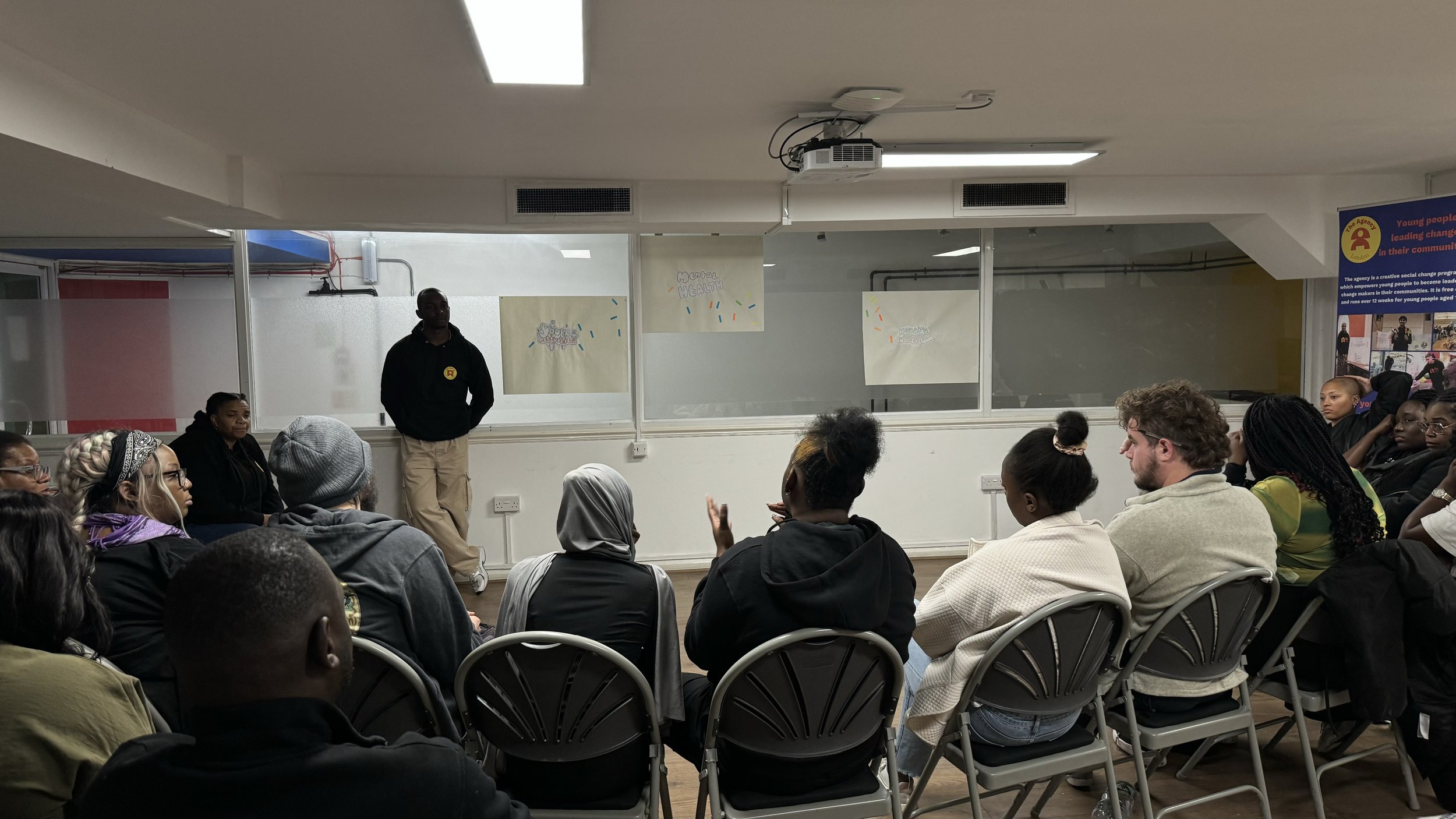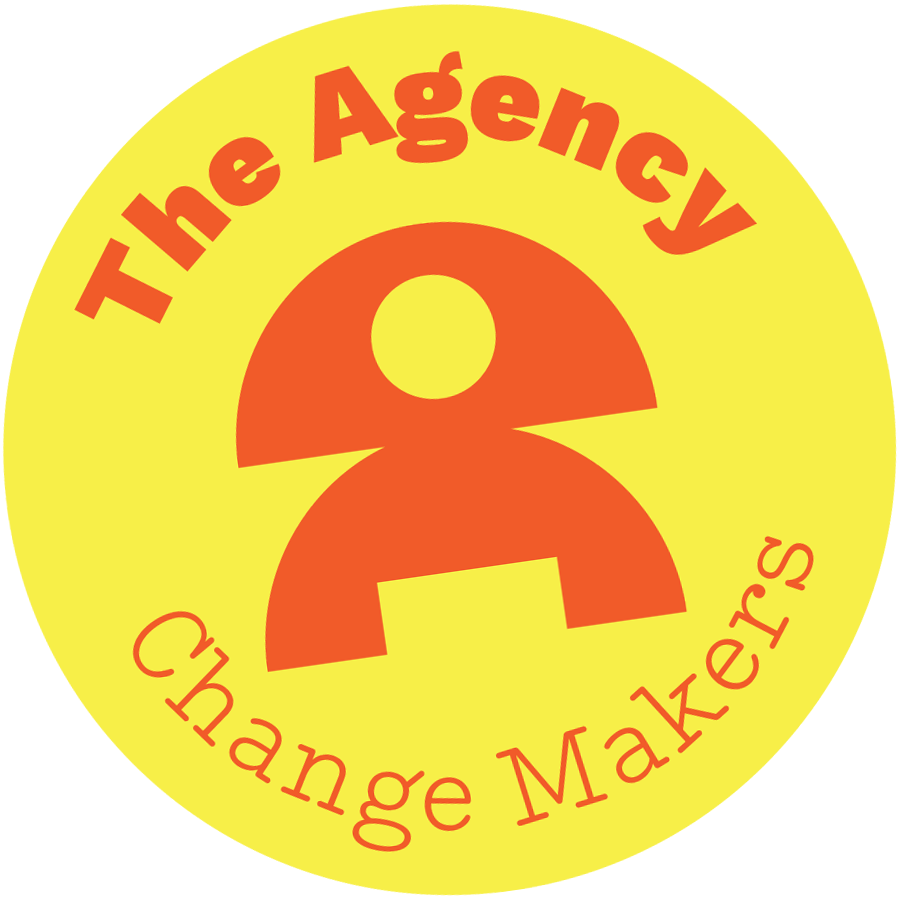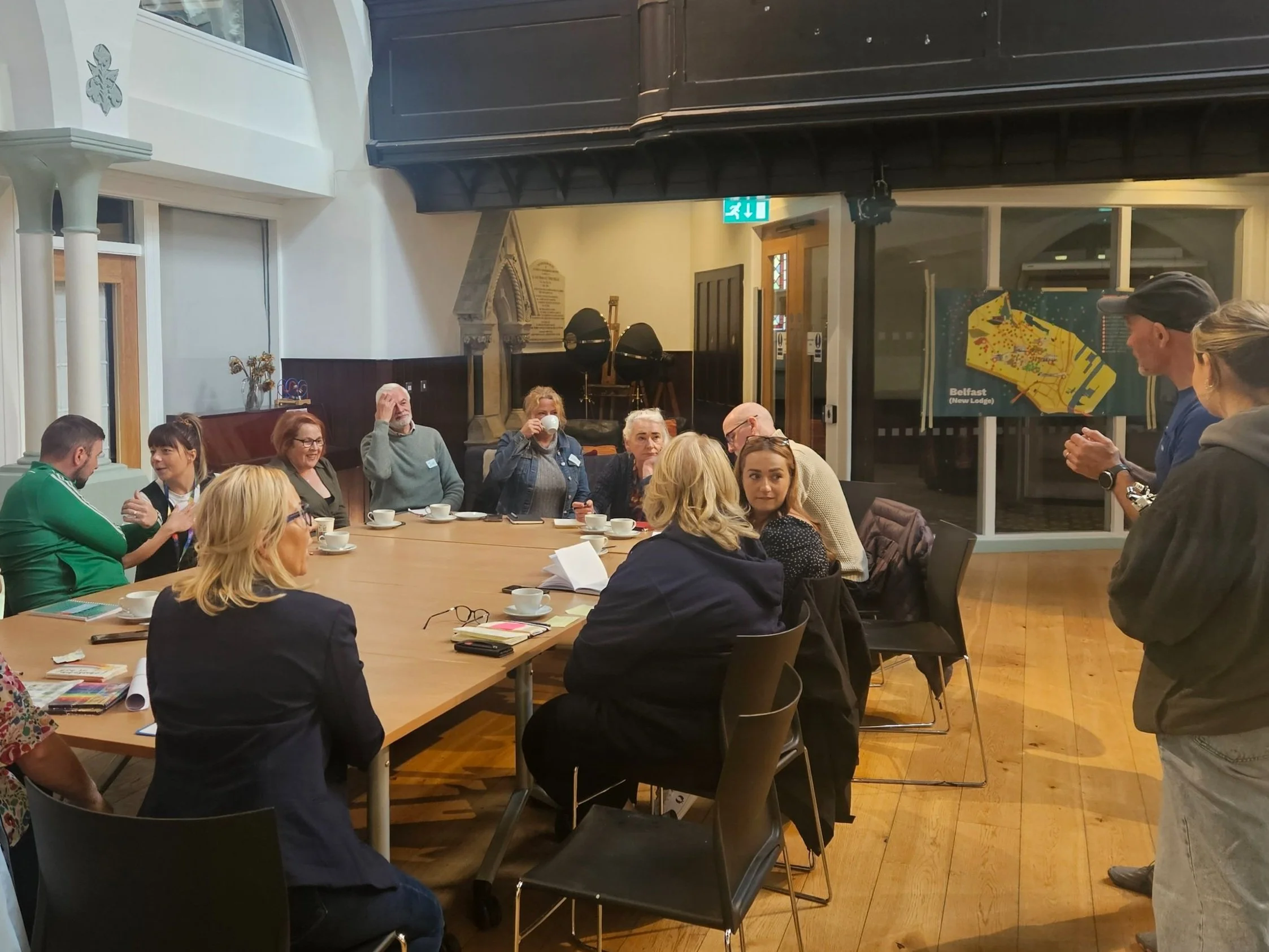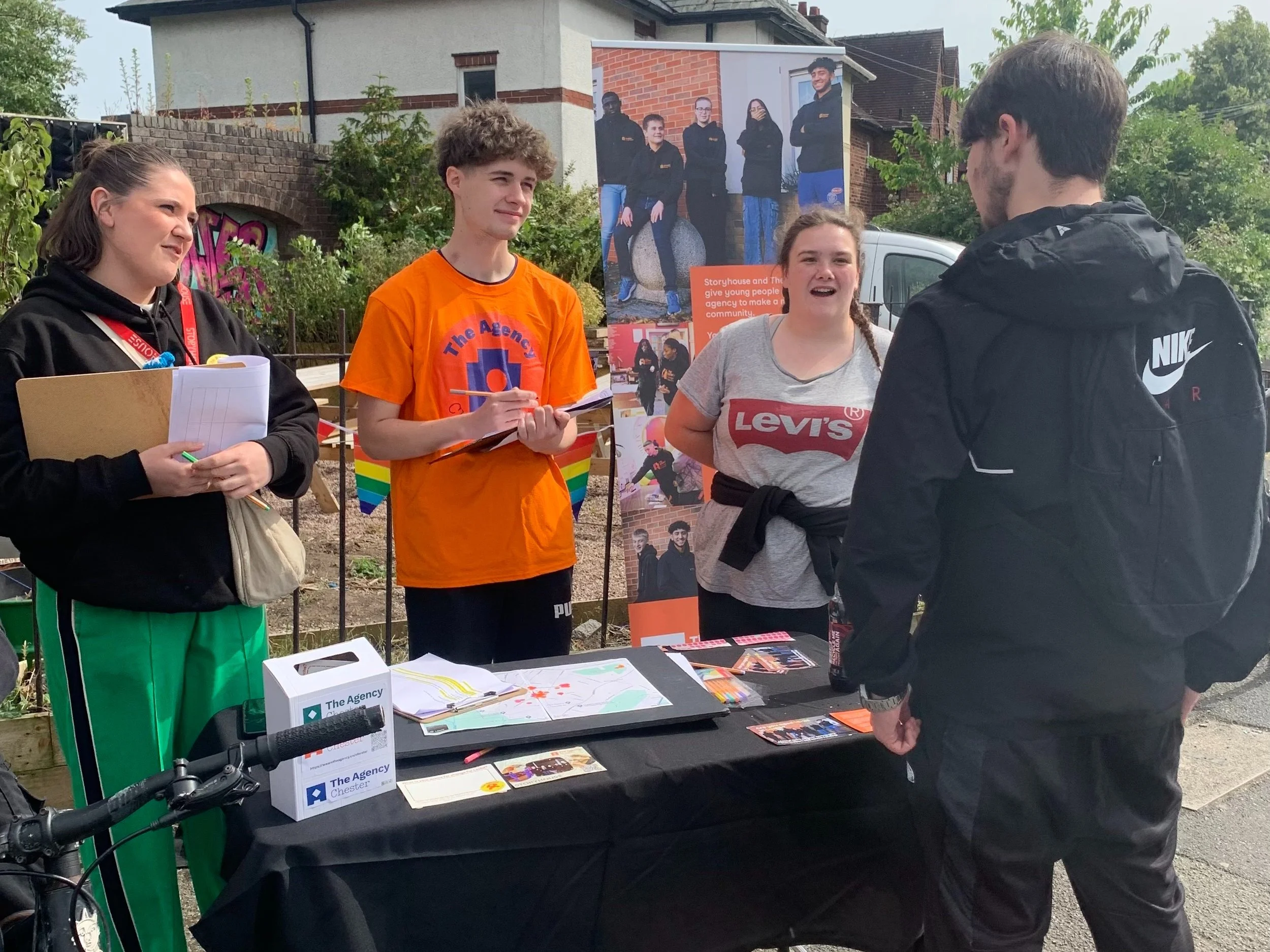
Community Research
in Belfast, Chester, London, Manchester & Southampton!
About Community Research
The community-based research initiative within The Agency project aims to deepen our understanding of the communities in which we run the programme, including Belfast, Chester, London, Manchester and Southampton. By engaging in hyper-local research, we aim to identify the most pressing needs, challenges and opportunities within these communities.
Drawing inspiration from a successful pilot in Brazil, this research in the UK engages local people and researchers in mapping key issues, envisioning solutions and activating community networks. Through this research endeavour, we aim to empower young people to become active and informed citizens, leading positive change in their local areas. By fostering local networks and disseminating research findings, we aim to catalyse dialogue and action around key community issues. The insights gained inform the development of projects by young people, ensuring they are rooted in the specific needs and aspirations of their communities.
Methodology
The methodology for this community research project was carefully designed as a replicable model, implemented across five different locations in the UK. The research was led by a team of experienced community activists, artists, and researchers, who guided young researchers through the process. This ensured that the research was both rigorous and inclusive, and empowered young people with the skills and knowledge needed to conduct meaningful research.
The research was shaped in three stages:
Market stall - Using maps and existing networks, the research teams in each location teams facilitated generative conversations with community members, discussing challenges and potential solutions.
Focus groups – Interactive and participatory focus groups identified and explored key challenges within the community, as well as envisioning potential changes.
Data analysis – Qualitative data including verbal discussions, written notes, visual materials (e.g., word clouds and postcards), and audio recordings are synthesized into a comprehensive narrative that captures the community's challenges, the nuances of each issue and the collective vision for change.
SUMMARY OF FINDINGS ACROSS RESEARCH AREAS
Anti-social Behaviour, Crimes & Safety Concerns
Anti-social behaviours like bullying, vandalism, violence, and crime create environments where residents feel unsafe. In Manchester, the community become desensitised towards knife crime and violence; while in Belfast, unreported cases and minimal consequences perpetuate these issues.
Common Challenges
Substance Abuse
Alcohol, vaping and drug use were frequently seen in public spaces, including parks, car parks and stations. These behaviours create an atmosphere of fear, discouraging community members from using public spaces.
Housing Insecurity
Rising living costs leave families struggling to afford housing, leading to issues such as overcrowding, unstable living conditions and homelessness. Such housing instability could have a negative effect on people’s mental and physical health.
Unsupported Mental Health
A lack of accessible and trusted mental health services leaves community members feeling unsupported. This is primarily caused by insufficient resources, funding shortages and long waiting lists, so people who need these services are unable to receive timely and effective care. Early intervention is essential to prevent issues from escalating.
Insufficient Youth Engagement and Services
Limited youth programmes and funding cuts for youth centres have left young people without constructive outlets. Some young people struggle to participate in activities due to high costs and lack of accessible information.
Poor Environmental Conditions
Areas outside the city centre are often neglected, with problems ranging from mould to fly-tipping. Some areas lacked well-maintained green space for social and recreational use. These problems adversely affect hygiene, health and public image of an area.
Common Opportunities
Community-Led Initiatives
There is a clear focus on developing grassroots initiatives to address local issues. Examples include organising community cleanup initiatives, introducing local heroes to deter anti-social behaviours, and initiating more gatherings for people from different backgrounds to come together. These all emphasize the importance of listening to residents and empowering them to shape their neighbourhoods.
Enhanced Youth Engagement
Involving young people in decision-making can ensure programmes align with their genuine interests and aspirations. With the right support and training, young people will feel empowered to take charge and contribute to community-building efforts.
Targeted Support for Vulnerable Groups
It is crucial to tailor initiatives to meet the needs of vulnerable groups. For instance, health and social services could go into neighbourhoods to increase accessibility, drug education can focus on parents who do not have English, and targeted support can be provided for young working families to get out of the cycle of private renting.
Strengthening Local Networks
Some communities are tight-knit yet resistant to external assistance, which makes it difficult for new initiatives to succeed. Strengthening these networks through partnerships can drive collective action, amplifying efforts to address shared challenges.
Leveraging Cultural and Environmental Assets
Communities across the research areas highlighted the potential of utilising underused spaces and leveraging environmental resources. Examples include transforming neglected spaces into vibrant hubs of community activity, operating youth clubs beyond traditional hours and using green spaces for family-friendly activities.
““We need to give young people the skills to create opportunities themselves because they are the future leaders.””
VIEW ALL REPORTS
Thank You
We would like to extend our heartfelt thanks to all those who participated in this research, for your insight and contributions. We are especially grateful to the community members who generously shared their time and insights during the market stalls and focus group sessions. Your input has been critical to the success of this report.
The community research project was supported by the National Lottery Community Fund. The pilot community research project was supported by People’s Palace Projects and Queen Mary University of London.



